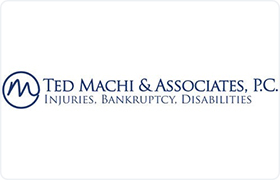Fort Worth Workout Lawyer, Texas
Sponsored Law Firm
-
 x
x

Click For More Info:
-
Machi & Associates, P.C.
1521 North Cooper Street Suite 550 Arlington, TX 76011» view mapAccident & Injury, Bankruptcy, Social Secuirty We Fight So You Don't Have To
Our professional team of attorneys and staff provide the experience and expertise needed to effectively handle your case.
800-804-0771
Charles R. Gibbs
Litigation, Workout, Bankruptcy, Bankruptcy & Debt
Status: In Good Standing Licensed: 46 Years
Vickie L. Driver
Workout, Reorganization, Commercial Bankruptcy, Bankruptcy
Status: In Good Standing Licensed: 24 Years
Zachary Dain Lanier
Merger & Acquisition, Workout, Collection, Bankruptcy
Status: In Good Standing Licensed: 8 Years
Christopher Cade Adams
Aviation, Industry Specialties, Business, Workout
Status: In Good Standing Licensed: 23 Years
 Ted Machi Arlington, TX
Ted Machi Arlington, TX Practice AreasExpertise
Practice AreasExpertise
